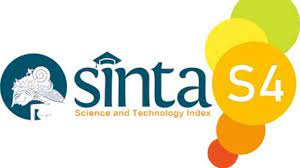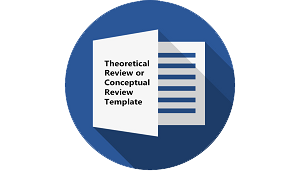Incorporating English and Islamic Knowledge into Workbook Development for Primary School Students
DOI:
https://doi.org/10.30957/ijoltl.v6i2.673Keywords:
Islamic school, Workbook, English and Islamic knowledgeAbstract
English teaching at primary school in Indonesia has experienced some changes in its curriculum, the K13 curriculum is the one that is implemented currently. However, there are some challenges that occur such as the time allocated for the English teaching until its textbook design. Henceforth, English teaching at primary school needs a new move. Another significant issue is related to the design of the curriculum that needs to be adjusted to each school context. In Islamic schools, English teaching finds its own issue, mainly on the cultural aspect—Western culture and ideology. Thus, this present research aims at developing an English workbook that is Muslim-friendly for their students. The method implemented in this study was Research & Development (R&D) with ADDIE (Analysis, Design, Development, Implementation, Evaluation) model. This research has resulted that there were 5 major topics related to Islamic content developed, such as believing in Allah and Rasulullah, salah, al-Qur’an, noble characters, and the Prophets. Further, this research has resulted from a concept of workbook design, comprising brainstorming, short text, and activities that divided into three categories: cognitive activities (matching and listing), kinesthetic activities (drawing, coloring, and tracing), and the last one is vocabulary-based activity (word search and puzzle). All chapters were designed by considering the implemented curriculum at school partners. The finding of this research has shed light that integrating English and Islamic content can be a way for Islamic schools in Indonesia to build Islamic value to their students as well as to find the school's own character.
Downloads
References
Alsubaie, M. A. (2016). Teacher Involvement in Curriculum Development. Journal of Education and Practice, 7(9), 106–107.
Candlin, C., & Mercer, N. (2001). English Language Teaching in Its Social Context. Routledge.
Carreira, J. M. (2011). Relationship between motivation for learning EFL and intrinsic motivation for learning in general among Japanese elementary school students. System, 39(1), 90–102. https://doi.org/10.1016/j.system.2011.01.009
Choy, S. C., & Troudi, S. (2006). An Investigation into the Changes in Perceptions of and Attitudes Towards Learning English in a Malaysian College. International Journal of Teaching and Learning in Higher Education, 18(2), 120–130.
Dick, Walter., Carey, Lou., Carey, James O. 2015. The Systematic Design of Instruction Eight Edition. The United States of America: Pearson
Dudley-Evans, T., & St John, M. J. (1998). Development in ESP a Multi-Disciplinary Approach. Cambridge University Press.
Erliana, U. & Arbain. (2020). The Effectiveness of Using Video Clip in Teaching English Vocabulary at SD Fastabiqul Khairat Samarinda. Indonesian Journal of Language Teaching and Lingusitics, 5(2), 123-134.DOI: 10.30957/ijotl-tl.v5i2.623.
Fayez, A., & Al-zu, M. (2013). the Difference Between the Learner-Centred Approach and the Teacher-Centred Approach in Teaching English As a Foreign Language. 2(2), 24–31.
Hawanti, S. (2014). Implementing Indonesia;s English language teaching policy in primary schools: The role of teachers; knowledge and beliefs. International Journal of Pedagogies and Learning, 9(2), 162–170. https://doi.org/10.1080/18334105.2014.11082029
Holliday, A. (2009). The role of culture in English language education: Key challenges. Language and intercultural communication, 9(3), 144-155.
Joo, S.J., Chick, A., Djonov, E. (2019) The construal of English as a global language in Korean EFL textbooks for primary school children. Asian Englishes. DOI: 10.1080/13488678.2019.1627636
Karmani, S. 2005. Petro-linguistics: The emerging nexus between oil, English, and Islam. Journal of Language, Identity, and Education, 4(2), 87-102.
Lavasani, M. G., Mirhosseini, F. S., Hejazi, E., & Davoodi, M. (2011). The effect of self-regulation learning strategies training on the academic motivation and self-efficacy. Procedia - Social and Behavioral Sciences, 29, 627–632. https://doi.org/10.1016/j.sbspro.2011.11.285
Lestariyana, R. P. D., & Widodo, H. P. (2018). Engaging young learners of English with digital stories: Learning to mean. Indonesian Journal of Applied Linguistics, 8(2), 489–495. https://doi.org/10.17509/ijal.v8i2.13314
Madkur, A. & Albantani, A.M. (2017). Instilling Islamic Values in Foreign Language Teaching: An Indonesian Context. Proceedings of the International Conference on Education in Muslim Society (ICEMS 2017). https://doi.org/10.2991/icems-17.2018.20
Mahmoodi, M. H., Kalantari, B., & Ghaslani, R. (2014). Self-Regulated Learning (SRL), Motivation and Language Achievement of Iranian EFL Learners. Procedia - Social and Behavioral Sciences, 98, 1062–1068. https://doi.org/10.1016/j.sbspro.2014.03.517
Nur, M. R., & Madkur, A. (2014). Teachers’ Voices on the 2013 Curriculum for English Instructional Activities. IJEE (Indonesian Journal of English Education), 1(2), 119–134. https://doi.org/10.15408/ijee.v1i2.1340
Oroujlou, N., & Vahedi, M. (2011). Motivation, attitude, and language learning. Procedia - Social and Behavioral Sciences, 29, 994–1000. https://doi.org/10.1016/j.sbspro.2011.11.333
Rifai, N. Al. (2010). Attitude, motivation, and difficulties involved in learning the English language and factors that affect motivation in learning it. Procedia - Social and Behavioral Sciences, 2(2), 5216–5227. https://doi.org/10.1016/j.sbspro.2010.03.849
Rohmah, G., Hanifiyah, L., Fitriyah, U., & Ningsih, A. (2019). Islamic Values Integration in English Lesson at Madrasah Tsanawiyah: Teachers’ Beliefs and Practices. Jurnal Bahasa Lingua Scientia, 11(1), 93-106. https://doi.org/10.21274/ls.2019.11.1.93-106
Sahiruddin, S. (2013). The implementation of the 2013 Curriculum and the issues of English language teaching and learning in Indonesia. The 3 Rd Asian Conference on Language Learning, 567–574.
Shokshok, S. M., & Indah, R. N. (2019). Figure of Speech Representing Religious Education Values in Moustafa Akkad’s The Message. LINGUA: Jurnal Bahasa, Sastra, Dan Pengajarannya, 16(1), 1-14. https://doi.org/10.30957/lingua.v16i1.568
Sulistiyo, U., Haryanto, E., Widodo, H. P., & Elyas, T. (2020). The portrait of primary school English in Indonesia: policy recommendations. Education 3-13, 48(8), 945–959. https://doi.org/10.1080/03004279.2019.1680721
Solikhah, I. & Budiharso, T. (2019). Investigating the Learning Outcomes of an INQF-Based English Language Teaching Curriculum in Indonesia. Journal of Social Studies Education Research. 10(4), 153-175.
Sumarsono, P. (2018). Methodology of Teaching and Learning Reading Using English Translation of Holy Quran as an Authentic Material Resource. The Social Sciences, 13(4): 813-819. doi. 10.36478/sscience.2018.813.819
Tsagari, D., Sifakis, N.C., (2014). EFL course book evaluation in Greek primary schools: Views from teachers and authors. System,45 211-226
Zein, S. (2016). Factors affecting the professional development of elementary English teachers. Professional Development in Education, 42(3), 423–440. https://doi.org/10.1080/19415257.2015.1005243
Zein, S. (2017). Elementary English education in Indonesia: Policy developments, current practices, and future prospects. English Today, 33(1), 53–59. https://doi.org/10.1017/S0266078416000407
Zhou, H. (2012). Enhancing Non-English Majors’ EFL Motivation through Cooperative Learning. Procedia Environmental Sciences, 12(Icese 2011), 1317–1323. https://doi.org/10.1016/j.proenv.2012.01.428
Downloads
Published
How to Cite
Issue
Section
License
Authors who publish with this journal agree to the following terms:
- Authors retain copyright and grant the journal right of first publication with the work simultaneously licensed under a Creative Commons Attribution-ShareAlike 4.0 International License that allows others to share the work with an acknowledgement of the work's authorship and initial publication in this journal.
- Authors are able to enter into separate, additional contractual arrangements for the non-exclusive distribution of the journal's published version of the work (e.g., post it to an institutional repository or publish it in a book), with an acknowledgement of its initial publication in this journal.
- Authors are permitted and encouraged to post their work online (e.g., in institutional repositories or on their website) prior to and during the submission process, as it can lead to productive exchanges, as well as earlier and greater citation of published work (See The Effect of Open Access).












